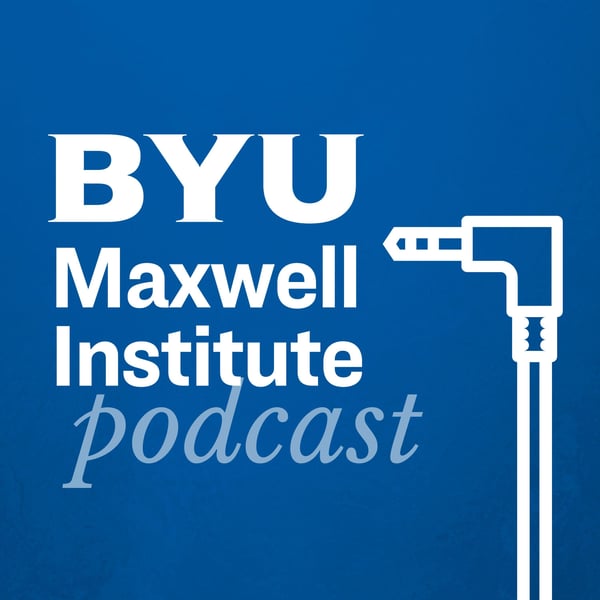(Reuploaded) Maxwell Institute Podcast #147: Slavery, Sacred Texts, and Historical Consciousness, with Jordan Watkins
Maxwell Institute Podcast
Maxwell Institute Podcast
4.8 • 789 Ratings
🗓️ 17 August 2022
⏱️ 51 minutes
🧾️ Download transcript
Summary
Transcript
Click on a timestamp to play from that location
| 0:00.0 | Welcome to the Maxwell Institute podcast. I'm Joseph Stewart. |
| 0:05.0 | In the decades before the Civil War, Americans appealed to the nation's sacred religious and legal texts, the Bible and the Constitution, to address the slavery crisis. |
| 0:14.0 | The ensuing political debates over slavery deepened interpreters' emphasis on historical readings of these sacred texts, and in turn, |
| 0:21.6 | these readings began to highlight the unbridgeable historical distances that separated |
| 0:25.6 | 19th century Americans from biblical and founding past. |
| 0:29.6 | While many Americans continued to adhere to a belief in the Bible's timeless teachings |
| 0:33.6 | and the Constitution's enduring principles, some anti-slavery readers, including |
| 0:38.1 | Theodore Parker, Frederick Douglass, and Abraham Lincoln used historical distance to reinterpret |
| 0:43.0 | and use the sacred texts as anti-slavery documents. |
| 0:46.6 | By using the debate over American slavery as a case study, Jordan Watkins, assistant professor |
| 0:51.6 | of church history and doctrine at BYU, traces the development of |
| 0:55.3 | American historical consciousness in Antebellum America, showing how a growing emphasis on historical |
| 1:00.2 | readings of the Bible and the Constitution gave rise to a sense of historical distance. |
| 1:05.6 | Before we begin our interview, could you please be sure to rate, review, and recommend our podcast to others so |
| 1:12.2 | that others can find it? Thanks so much. Please enjoy this interview with Dr. Jordan Watkins. |
| 1:19.0 | Welcome, Jordan Watkins, the Maxwell Institute podcast. Thank you. Super excited to be here. |
| 1:23.7 | We are thrilled to have you here. And we're here to discuss your book from Cambridge University Press, |
| 1:28.9 | Slavery and Sacred Texts, the Bible, the Constitution, and Historical Consciousness in Antebellum |
| 1:34.3 | America. How did you come to study this? I understand that this book came from your doctoral dissertation. |
| 1:40.7 | It did. I studied at the University of Nevada, Las Vegas. And pretty early on in my PhD program, I was, of course, looking for a dissertation project. In a class I took, I wrote a paper on Ralph Waldo Emerson's approach to history. And as I wrote that paper, I began to examine some of the scholarship on historical consciousness in Antebellum America. |
| 2:02.8 | And I thought that maybe there was more to say there. |
| 2:06.2 | So I determined, you know, maybe this is what my project will be. |
... |
Please login to see the full transcript.
Disclaimer: The podcast and artwork embedded on this page are from Maxwell Institute Podcast, and are the property of its owner and not affiliated with or endorsed by Tapesearch.
Generated transcripts are the property of Maxwell Institute Podcast and are distributed freely under the Fair Use doctrine. Transcripts generated by Tapesearch are not guaranteed to be accurate.
Copyright © Tapesearch 2025.

